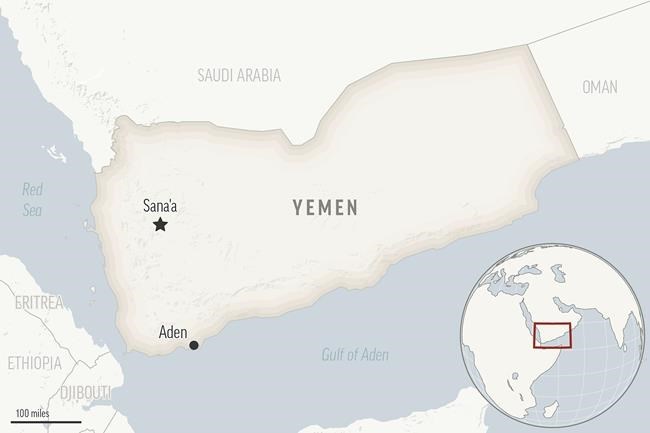NEW YORK (AP) — Five United Nations staff members who were kidnapped in Yemen 18 months ago by an al-Qaida affiliate have walked free, U.N. officials said Friday.
David Gressly, the U.N. humanitarian coordinator in Yemen, said the five men - four Yemenis and one who is from Bangladesh, were “in good health, good spirits ... but they went through a very difficult period of isolation.”
The five were freed after lengthy negotiations that included officials from Oman, the U.N. said. Gressly, who spoke to U.N. reporters after flying with the four citizens to southern Yemen's port city of Aden, said: : “I can confirm that the hostage-takers were Al Qaeda in the Arabian Peninsula.”
Also known as AQAP, the group has been active in southern Yemen for years and is considered one of the global al-Qaeda network’s most dangerous branches. It has attempted to carry out attacks on the U.S. mainland.
Gressly said the United Nations never pays ransom, which is one reason the U.N. staffers may have been held for so long.
“This is a threat that remains here in in Yemen — and remains actually an increasing threat,” he said.
In February 2022, suspected al-Qaida militants abducted five U.N. workers in southern Yemen’s Abyan province, Yemeni officials told The Associated Press at the time.
In a statement earlier Friday, Farhan Haq, the deputy spokesman for U.N. Secretary General Antonio Guterres named the freed men as Akm Sufiul Anam; Mazen Bawazir; Bakeel al-Mahdi; Mohammed al-Mulaiki; and Khaled Mokhtar Sheikh. All worked for the U.N. Department of Security and Safety, he said.
Three Yemeni security officials and a tribal leader also said that al-Qaida in the Arabian Peninsula was behind last year’s kidnapping in Abyan province.
However, they said that after a series of fraught negotiations mediated by tribal leaders, a ransom was paid to the militant group and the U.N. employees were subsequently released. The three security officials spoke on condition of anonymity, as they were not briefed to speak with journalists. The tribal leader requested anonymity out of fear of reprisals.
No furthers deals about the alleged payment were provided, and the security sources did not specify which body or individual presented the random funds. A spokesman for the Saudi-led coalition, which backs Yemen’s internationally recognized government in its war against Iran-backed Houthi rebels, did not immediately respond to a request for comment on the issue of the ransom.
The AP was unable to reconcile the account of the Yemenis with Gressly's statement on the U.N.'s no-ransom position.
Gressly told reporters he did not want to give details about the staff members' captivity.
“They’re extremely pleased to be back here in Aden," he said. "I think now’s the time for us, simply to celebrate their return, to give them time to get back with their families.”
“There’s a lot that will have to be processed in the days and weeks to come for them,” he said. ”“This is a very difficult situation to for anybody to live through, but they seem to have come through in remarkable condition.”
Kidnappings are frequent in Yemen, an impoverished nation where armed tribesmen and militants take hostages to swap for prisoners or cash.
War has ravaged the country since 2014, when the Houthi rebels seized the country's capital, and much of the north, and forced the government into exile.
A Saudi-led coalition that included the United Arab Emirates intervened the following year to try to restore Yemen's internationally recognized government to power.
Al-Qaida has since exploited the conflict to cement its presence in the country.
__
Al-Haj reported from Sanaa. Jack Jeffery in Cairo contributed reporting.
Edith M. Lederer And Ahmed Al-haj, The Associated Press



